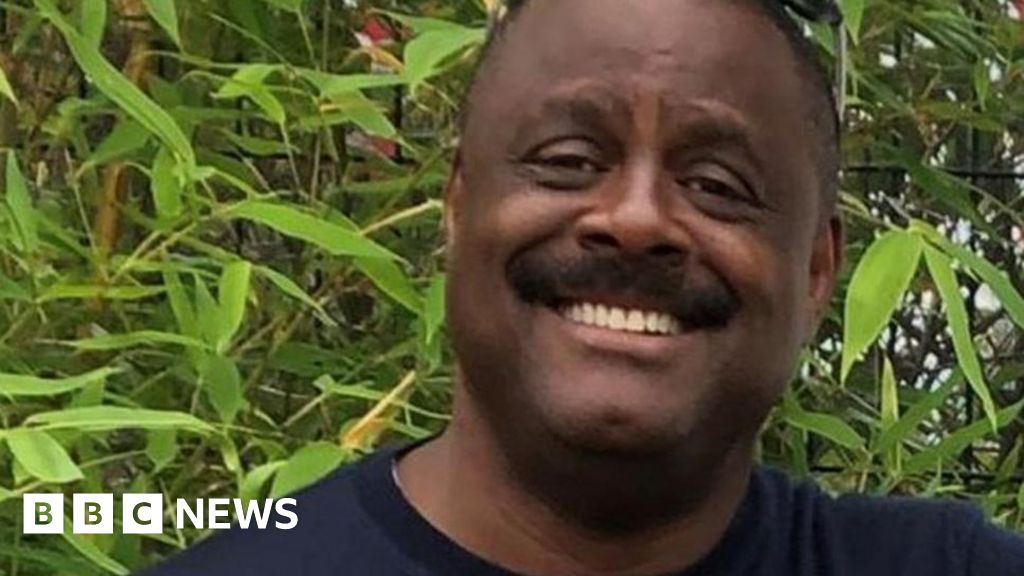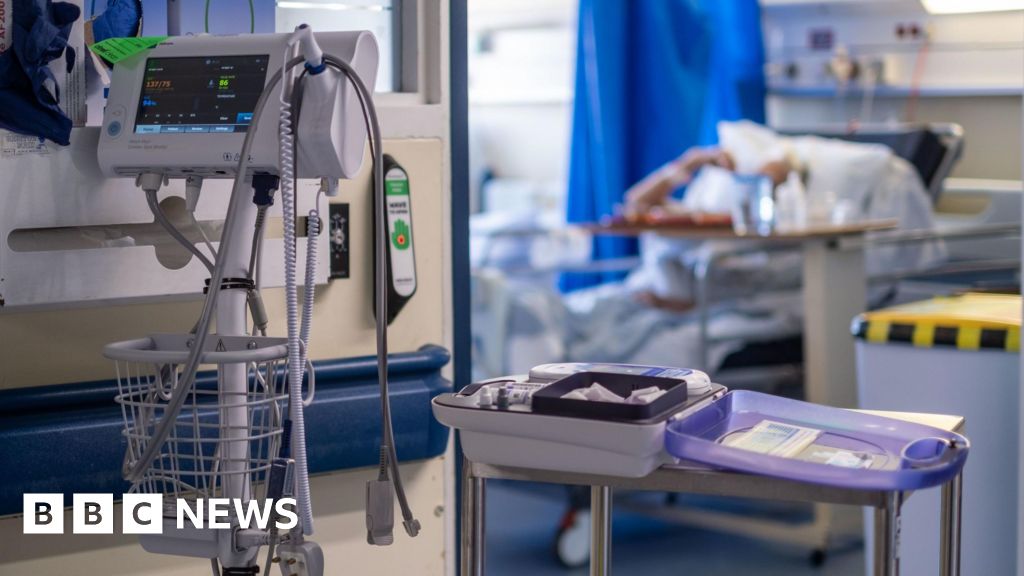ARTICLE AD BOX
WATCH: BBC reporter's ADHD diagnosis with Harley Psychiatrists
Patients are being offered powerful drugs and told they have attention deficit hyperactivity disorder (ADHD) after unreliable online assessments, a BBC investigation has discovered.
Three private clinics diagnosed an undercover reporter via video calls.
But a more detailed, in-person NHS assessment showed he didn't have the condition.
The clinics say they conduct thorough assessments and follow national guidelines.
Panorama spoke to dozens of patients and whistleblowers after receiving tip-offs about rushed and poor-quality assessments at some private clinics, including Harley Psychiatrists, ADHD Direct and ADHD 360.
All three diagnosed undercover reporter Rory Carson with the neurodevelopmental disorder - a recognised medical condition which affects behaviour and can be considered a disability under the Equality Act 2010.
The investigation found that:
- Clinics carried out only limited mental health assessments of patients
- Powerful drugs were prescribed for long-term use, without advice on possible serious side effects or proper consideration of patients' medical history
- Patients posting negative reviews were threatened with legal action
- The NHS is paying for thousands of patients to go to private clinics for assessments
Commenting on Panorama's findings, Dr Mike Smith - an NHS consultant psychiatrist - said he was seriously concerned about the number of people who might "potentially have received an incorrect diagnosis and been started on medications inappropriately".
There has been a big increase in the number of adults seeking ADHD diagnoses in recent years - because of the success of treatments and more awareness of the condition. Support groups say it has long been under-diagnosed.
Discussion about ADHD is widespread on social media, with #ADHD attracting more than 20 billion hits on TikTok alone.
In some areas, it can take more than five years to secure an NHS assessment - so many patients are instead prepared to pay hundreds of pounds to be seen at private clinics. The NHS is also picking up the bill for thousands of these private assessments, as part of the government's drive to bring down waiting lists.
Having ADHD can be considered a disability - it depends whether or not someone's condition has a "substantial" and "long-term" negative effect on their ability to carry out normal day-to-day activities.
Panorama's undercover reporter answered questions about his symptoms truthfully throughout each of the assessments. Although, he didn't tell the private clinics the real reason he'd booked the appointment.
His first assessment was at a face-to-face meeting with Dr Smith - who leads a specialist adult ADHD service in the NHS.
Dr Mike Smith concluded that Rory Carson does not have ADHD
Carson and his family filled out questionnaires about his habits and childhood history ahead of an appointment that lasted more than three hours. It involved a full psychiatric assessment. His assessment followed the guidelines issued by the National Institute for Health and Care Excellence (NICE).
Some of the symptoms of ADHD can include things many people experience, such as fidgeting, getting distracted and acting impulsively. But NICE guidelines say someone should only receive a diagnosis of ADHD if those symptoms severely impact their life.
Dr Smith concluded that Carson does not have ADHD.
There are 18 recognised symptoms that can indicate someone has ADHD and Carson was found not to meet the clinical threshold for a single one of them.
But when the journalist went undercover at Harley Psychiatrists, he was scored 15 out of 18 - after a 45-minute video call with a psychologist.
He paid £685 for his assessment and was told by the psychologist: "There's no expiration date for this. You're diagnosed for life."
More and more people are turning to private clinics for an assessment to determine whether they have ADHD. Panorama investigates whether some are giving unreliable diagnoses
Watch the full investigation on BBC iPlayer and on BBC One on Monday 15 May at 20:00 in England and Scotland and 20:30 in Wales and Northern Ireland
There was a follow-up appointment with a psychiatrist a week later, lasting less than 10 minutes, at which Carson was prescribed a stimulant called methylphenidate.
This is a standard treatment for ADHD. The medication interacts with chemicals in the brain and can help someone with the condition concentrate better, be less impulsive and feel calmer.
The drug is considered safe and effective for most people who have the condition, but can have serious side effects for some patients, such as those with heart problems or certain mental health issues.
Being exposed to this medication if you don't have ADHD can be a dangerous health risk, according to Dr Smith, and it can also exacerbate existing mental health conditions. Stimulants used to treat ADHD are Class B drugs - controlled substances under the Misuse of Drugs Act.
Harley's psychiatrists didn't ask the BBC reporter any detailed questions about his mental health before prescribing the drugs and he wasn't warned about the potential for serious side effects.
Lawyers for Harley Psychiatrists told Panorama clinicians also take account of information in pre-assessment forms: "The suggestion there is a high risk our client is misdiagnosing adults with ADHD is untrue and unsubstantiated - as is the suggestion that adequate checks are not conducted."
They said, "diagnosis of ADHD… depends on the answers given by the patient", and there have been "numerous patients who have not been diagnosed with ADHD".
The lawyers said the clinic accepted that Carson "should not have been able to obtain a prescription" and has updated its processes.
Lawyers for the Harley psychologist who assessed Carson told us that while her testing produced results "indicative of a patient having ADHD", such a "diagnosis is formally made by a psychiatrist".
Lawyers for the psychiatrist - who prescribed the drugs - said their client stood by his diagnosis. He would "normally take between 30 and 45 minutes" to complete consultations, they said, but in this case he "did not consider it necessary" because of the psychologist's report.
Carson also had an assessment with ADHD Direct, based in Glasgow.
He was assessed by a nurse who was new to the clinic and being supervised by another nurse. NICE guidelines say assessments must be conducted by a psychiatrist or a suitably qualified clinician.
The assessment lasted an hour and 40 minutes, and cost £1,095. The nurses asked more thorough questions than Harley Psychiatrists about Carson's medical history - and he and his family were asked to fill out a questionnaire beforehand. But Carson says the assessment still felt "like a tick-box exercise".
Once again he was diagnosed with ADHD at a follow-up appointment and offered a prescription for stimulants.
The journalist revealed to the clinic that he was an undercover reporter before going any further.
Lawyers for ADHD Direct said there would have been more checks before Mr Carson got the drugs. They say his assessment included a "full developmental and psychiatric history" and the clinic "stands by its diagnosis".
"ADHD is under-identified, under-diagnosed and under-treated," the lawyers added - stating that the clinic has "no incentive… to over diagnose" and that an audit had found that "10% of the patients seen did not have ADHD".
The undercover reporter also booked an online appointment with ADHD 360, a clinic based in Lincolnshire, which assesses thousands of NHS-funded patients.
Patients and former staff had told the BBC that appointments were short and almost everyone who went there got diagnosed with ADHD.
One clinician said that while working for ADHD 360 he would see a patient "on the hour, every hour" and that he didn't think this was safe. ADHD 360 says clinicians are only expected to do two assessments a day.
If you are affected by any of the issues in this story, visit the BBC Action Line.
Carson was assessed by a pharmacist. He didn't take a full psychiatric history but diagnosed the reporter with ADHD after an hour and 15 minutes. He also prescribed stimulant medication, without proper checks.
ADHD 360 says it is regulated as an NHS provider and delivers "high standard assessment, diagnosis, treatment and care" for thousands of patients. Its "qualified clinicians" are trained in its own academy and its "assessments meet all accepted best practices".
It says on this occasion its "prescription policy was regrettably not followed" and "procedures have now been reviewed" and enhanced.
People who spoke to Panorama also expressed their concerns about the quality of care being offered by private clinics to vulnerable patients who turn to their services in desperation because NHS waiting lists are so long.
Casey faced a three-year wait for an ADHD assessment with the NHS and borrowed almost £700 to be seen by Harley Psychiatrists instead.
Casey posted a negative review online and Harley Psychiatrists told her the matter had been passed to its legal team
She says she was diagnosed with ADHD - by the same psychologist as the BBC reporter - after a video call lasting about 40 minutes.
Casey posted a number of negative reviews online, and the clinic sent her a letter - seen by Panorama - which said she had written "potentially unlawful" reviews and that the matter had been passed to the company's legal department.
The BBC is aware of a number of other apparent legal threats made to patients, after they left negative reviews about Harley Psychiatrists.
Lawyers for the clinic said it was entitled to request the removal of false and defamatory reviews.
There is no doubt that many people who go to private clinics will have ADHD, but experts say patients might not get the right treatment if the assessment was unreliable.
"These people were supposed to help me and they took advantage of me," Casey told the BBC.
"I wasn't someone who was struggling with their mental health and needed help, I was just money to them."

 2 years ago
77
2 years ago
77








 English (US) ·
English (US) ·